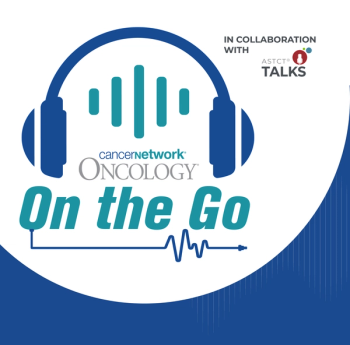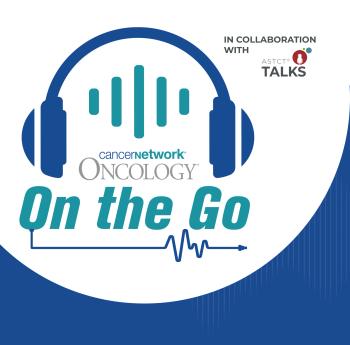
Researchers have observed that HSC–derived innate lymphoid cells prevent GVHD by inducing interleukin 9 driven T-cell senescence.

Your AI-Trained Oncology Knowledge Connection!


Researchers have observed that HSC–derived innate lymphoid cells prevent GVHD by inducing interleukin 9 driven T-cell senescence.

Researchers have demonstrated that a tandem CAR T cell targeting mesothelin and MUC16 ectodomain is able to outmaneuver tumor heterogeneity, outperforming single target CAR T cells in mixed ovarian and pancreatic models.

Researchers have determined that donor age has a stronger, nonlinear impact on OS vs donor type in allogeneic HCT using posttransplant cyclophosphamide for GVHD prophylaxis, with donor type becoming increasingly relevant in older donors.

Researchers have determined that matched allogeneic donor CD19 CAR T-cell therapy, delivered as a CAR-modified donor lymphocyte infusion, is safe and clinically active for adults with relapsed B-ALL following allogeneic transplant.

A panel of oncology pharmacists discusses the role of lifileucel in metastatic melanoma and other considerations for using cellular therapy in solid tumors.

Researchers conducted a large registry-based analysis comparing haploidentical donors and older matched sibling donors in older patients with AML.

Why do some patients with follicular lymphoma experience benefit from axi-cel while others relapse or develop severe toxicities?

Researchers from the BMT CTN reported that posttransplant cyclophosphamide-based GVHD prophylaxis significantly improves outcomes for adults aged 70 years and older undergoing allo-HCT.

Researchers at the CHOP have developed a new strategy to improve the effectiveness of GPC2-directed CAR T-cell therapy in neuroblastoma by reprogramming the tumor immune microenvironment.

Researchers have identified the transcription factor CEBPA as a crucial regulator of immune recognition in acute myeloid leukemia.

Researchers have found that donor age is a key determinant of outcomes in hematopoietic cell transplantation, with younger donors associated with significantly better survival and lower rates of GVHD.

Administering precision-selected donor regulatory T-cell therapy significantly improves GVHD-free, relapse-free survival in patients undergoing allogeneic HCT.

Among 77 enrolled patients, the cumulative incidence of grades 2 to 4 aGVHD at day 100 post-transplantation was 18.2% (95% CI, 10.6–27.6%).

An expert panel highlights key presentations in multiple myeloma, lymphoma, and other hematologic malignancies at the 2025 ASCO Annual Meeting.

Researchers demonstrated that haplo-HSCT, combined with post-transplant cyclophosphamide, is a feasible and effective treatment for hematologic malignancies even in resource-limited settings.

Researchers conducted a prospective, multicenter phase II clinical trial demonstrating that prolonged administration of ruxolitinib after allogeneic HCT is associated with notably low rates of cGVHD.

Therapies such as betibeglogene autotemcel have been “life-changing” for patients with β-thalassemia, according to Nora M. Gibson, MD, MSCE.

In a multicenter retrospective study authors examined the impact of prior inotuzumab ozogamicin exposure on the outcomes of brexu-cel therapy in adults with R/R B-cell ALL.

Researchers conducted a comprehensive review on how intrinsic T cell characteristics influence CAR-T cell therapy outcomes in hematological malignancies.

For Terri Lynn Shigle, PharmD, the field of hematology-oncology is deeply personal. Having lost loved ones to cancer, she was drawn to a career where she could make a meaningful difference in patient care.

In celebration of Women’s History Month, ASTCT is proud to highlight the inspiring journeys of women making a profound impact in transplantation and cellular therapy.

One of the most predictable toxicities of autologous stem cell transplantation for multiple myeloma — even more so than mucositis — is hair loss.

Overall, BMT CTN 0702 showed no improvement in outcomes with added post-ASCT consolidation as compared to standard lenalidomide maintenance.

Shernan Holtan, MD, and Rahul Banerjee, MD, FACP, discussed various trials of significance shared as posters and presentations at the 2025 Tandem Meeting.

Researchers from the University of Wisconsin, Cornell, and a consortium of other institutions conducted a retrospective analysis on CD19-directed CAR T-cell therapy for R/R T-cell/histiocyte-rich LBCL.

Researchers from Bambino Gesù Children’s Hospital and Sapienza University in Rome, Italy examined the recovery and function of MAIT cells in pediatric and young adult patients following allo-HSCT.

Researchers at Stanford University have conducted a phase 1 clinical trial evaluating the combination of a bispecific CAR T-cell therapy targeting CD19 and CD22 with NKTR-255.

The "New Developments in CAR T Treatments" webinar series brought together leading experts in the field of cancer immunotherapy to discuss the latest advancements and ongoing research in CAR T and natural killer cell therapies.

Findings from the Phase 3 AURIGA trial support the use of lenalidomide plus daratumumab vs lenalidomide alone as post-transplant maintenance therapy for patients with newly diagnosed multiple myeloma.

Researchers at SickKids Hospital and McMaster University have developed a novel CAR T-cell therapy targeting ROBO1 for the treatment of recurrent glioblastoma.